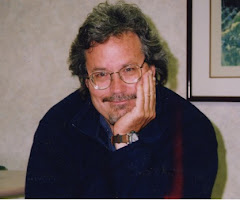Today's Wisconsin State Journal has a long article concerning now the new generation of faculty. 54 percent of full-time faculty members were older than 50 in 05! What sort of people are starting to replace them?
According to studies done by--well, professors--at George Mason University and the University of British Columbia (cited in the WSJ article):
"Self-described liberals are most common within the ranks of those professors aged 50-64, who were teenagers or young adults in the 1960's."The article says that the youngest group, ages 26-35, contains the highest percentage of moderates, some 60 percent, and the lowest percentage of liberals.
Now, consider those who consider themselves "liberal activists". The comparison of the oldest group with professors 35 and younger is 17.2 percent with 1.2 percent!
Ah, moderation. Let's not get too excited. In fact, there is a possibility that the "liberal activists'" preaching may have had a more dramatic opposite effect on unconvinced students than a sort of drippy moderation would have.
Still, it is hard to sustain the revolution when the times are so good. An example of the formative experiences of an aging UW professor includes: a father who was a Socialist; organizing support for a black voter-registration drive; taking a bus to Washington to protest the war in Vietnam; agitating against Nixon and the invasion of Cambodia in 1970. As one aging lib puts it, "...in the late 60's and 70's, the Marxist impulse was central for those interested in social justice. Now, it resides at the margins." Younger faculty have other issues. When a woman sociology professor, aged 34 "...speaks of added pressures on her generation, she talks about being pregnant or taking care of her 17-month-old while trying to earn tenure."
What does all of this mean? The law of averages indicates that there ought to be sometime soon a shift to the right--whatever that means--in our cultural dialogue. Because the universities are the training ground for our intellectuals and cultural movers and shakers, a rightward trend toward moderation should eventually mean a more conservative national conversation about all things, from art to families to abortion; from a to z. What I expect to see is this-- and I think it is starting to take place: the polarization of the 60's and 70's, where labels were set in stone and lines were clearly drawn, will give way to a homogenization of the experiences and lessons both sides have undergone, creating some sort of new paradigm in the way we think and interact. We'll have, for example, crunchy conservatives, whoever they are...


5 comments:
I think you may very well be right, though I see an awful lot of apparent far-left liberals who are my age. Thus may, however, have something to do with growing up very near He-, er, Madison. Anyway, this post puts me in mind of the Dialectic, the one and only Marxist idea I've ever had any use for.
I think Marx regurgitated and twisted the concept. Are you referring to Hegel's rediscovery of Plato's dialectic?
The basic idea, of conversation or argumentation toward the goal of agreement or concensus is a good 'un.
I was referring to the diagram in my Soc textbook that basically illustrated your second paragraph in the above comment, and claimed it was Marx's dialectic. :P Since I have, in fact, read none of the original sources here referred to, I will refrain from further comment.
Though yeah, that last thing you said is what I was going for.
A crunchy conservative? Grab a mirror, dude.
Who was the famous wag who noted that mirrors--and copulation-were abominable. They both tend to increase the population.
For myself, I'll be content to be regarded as a Lutran, of some stripe or other. A crunchy Lutran.
Post a Comment